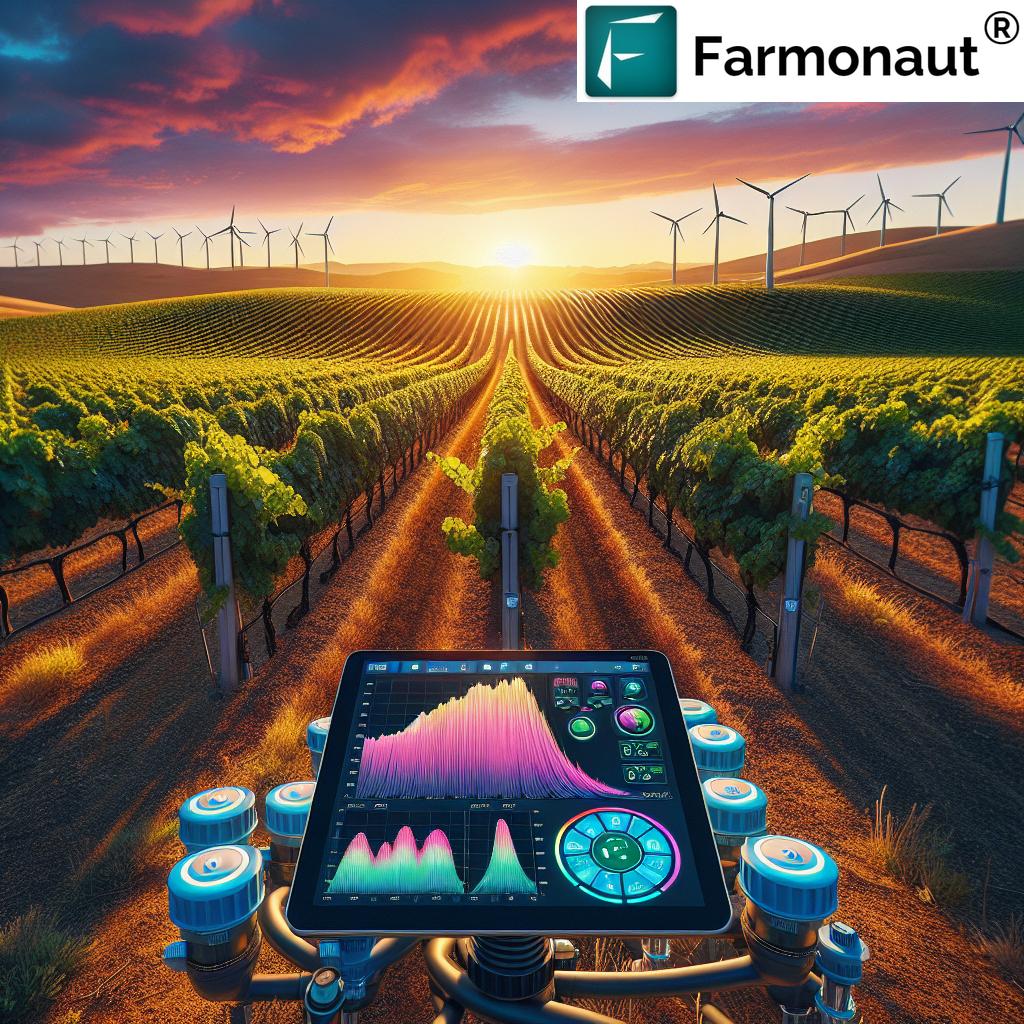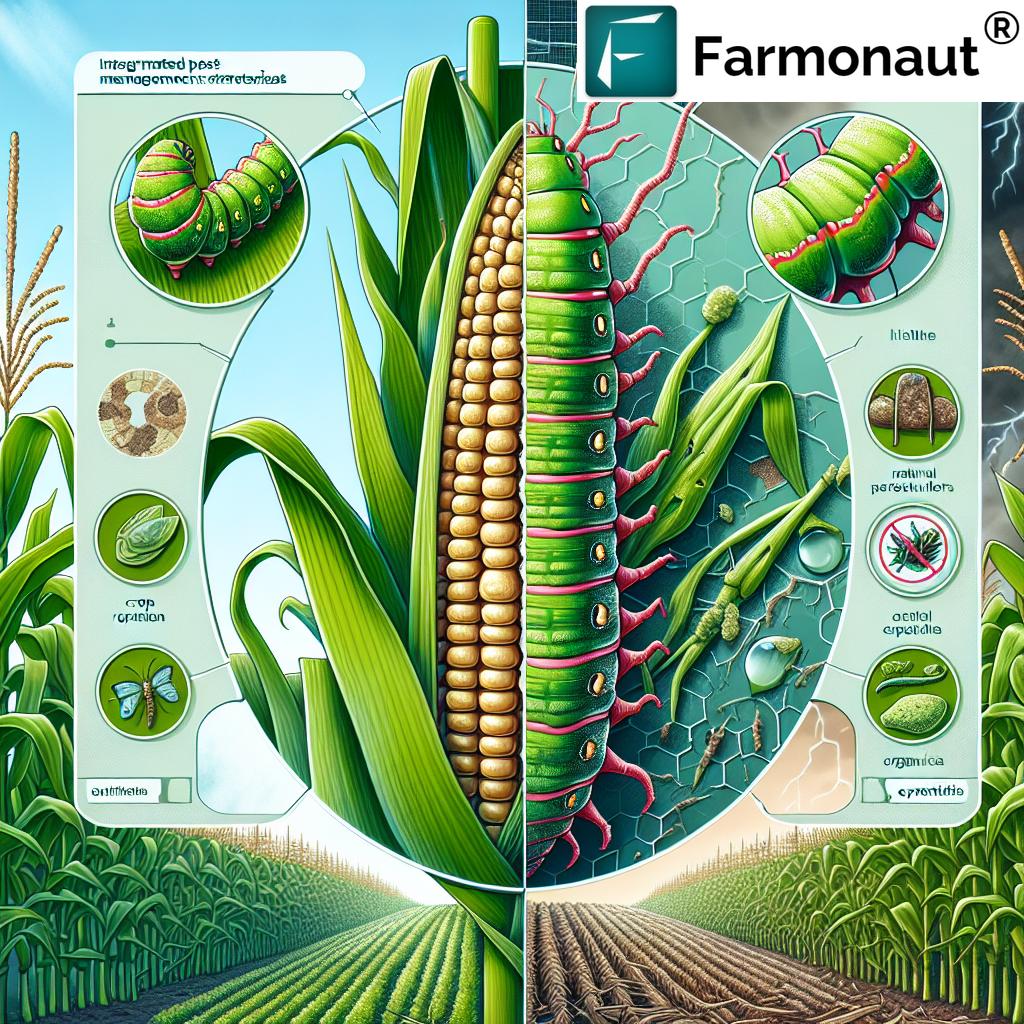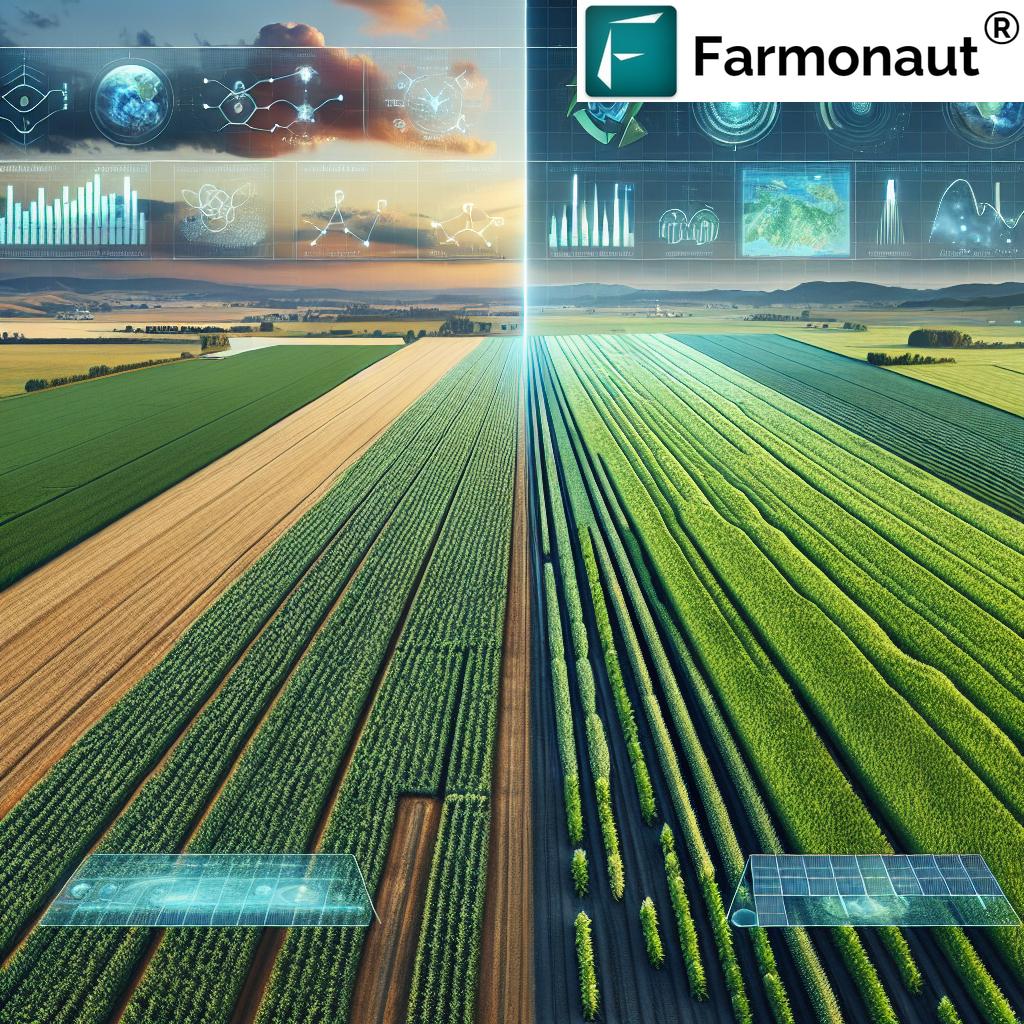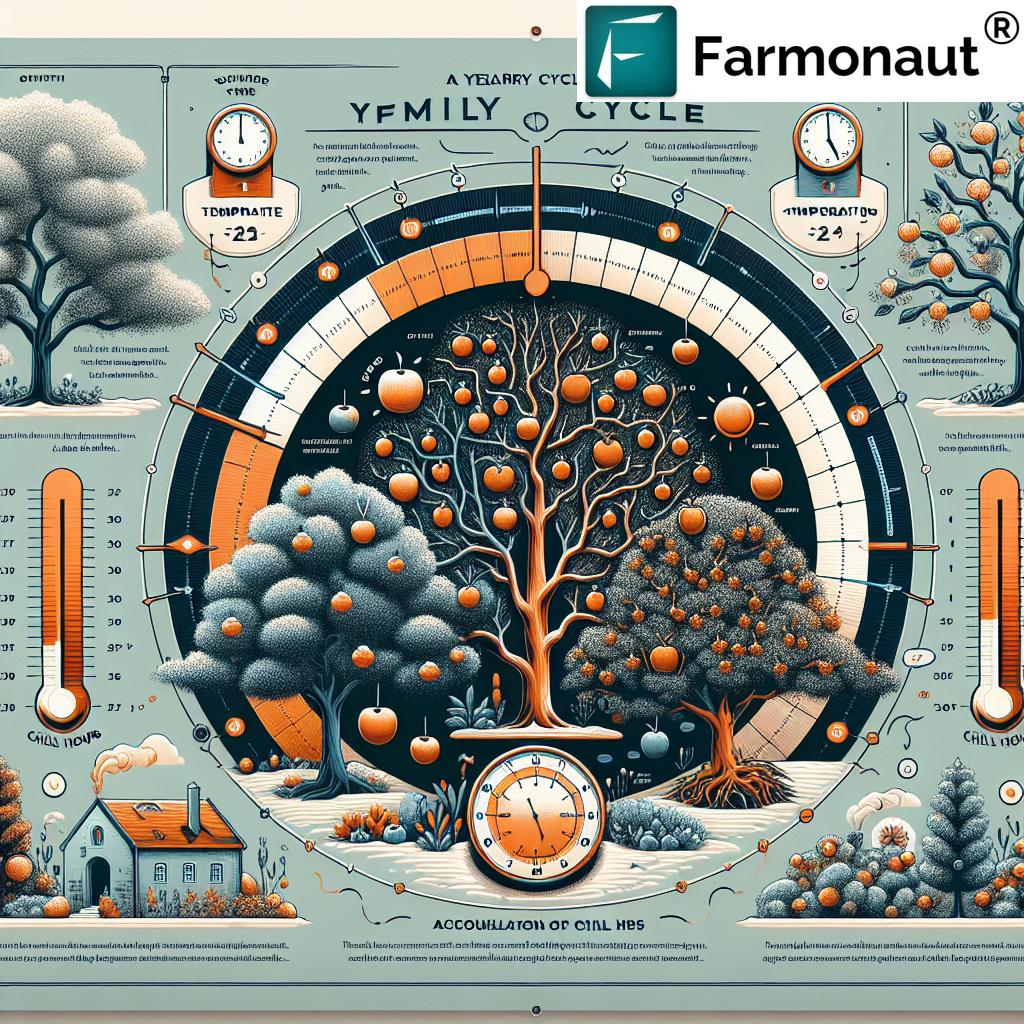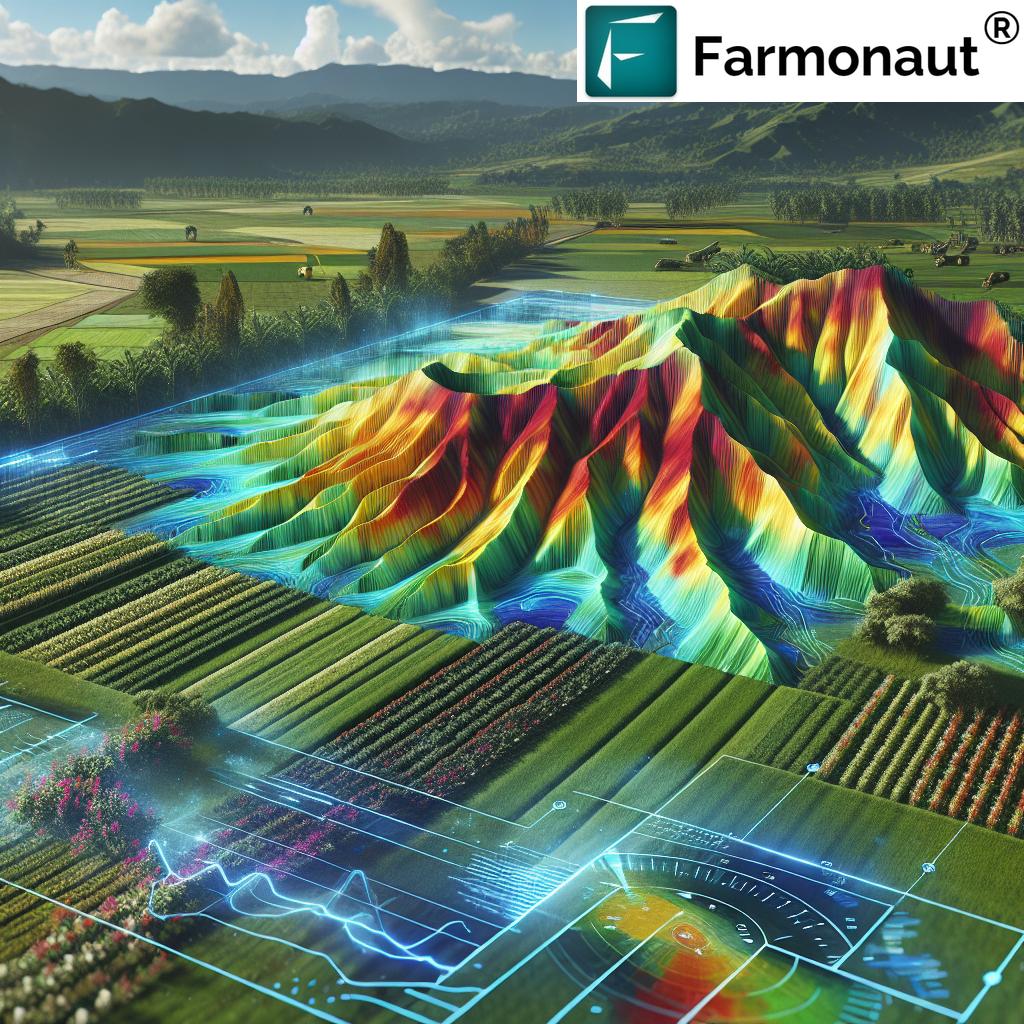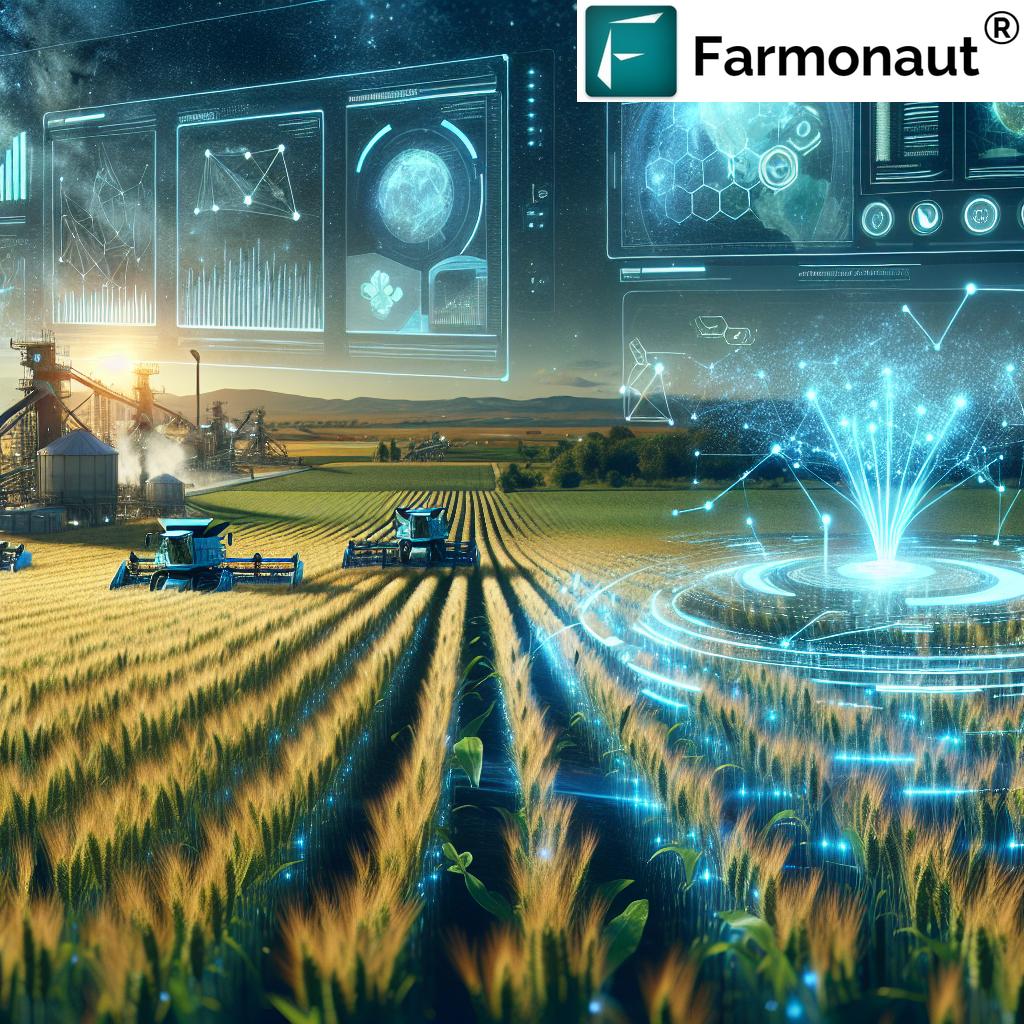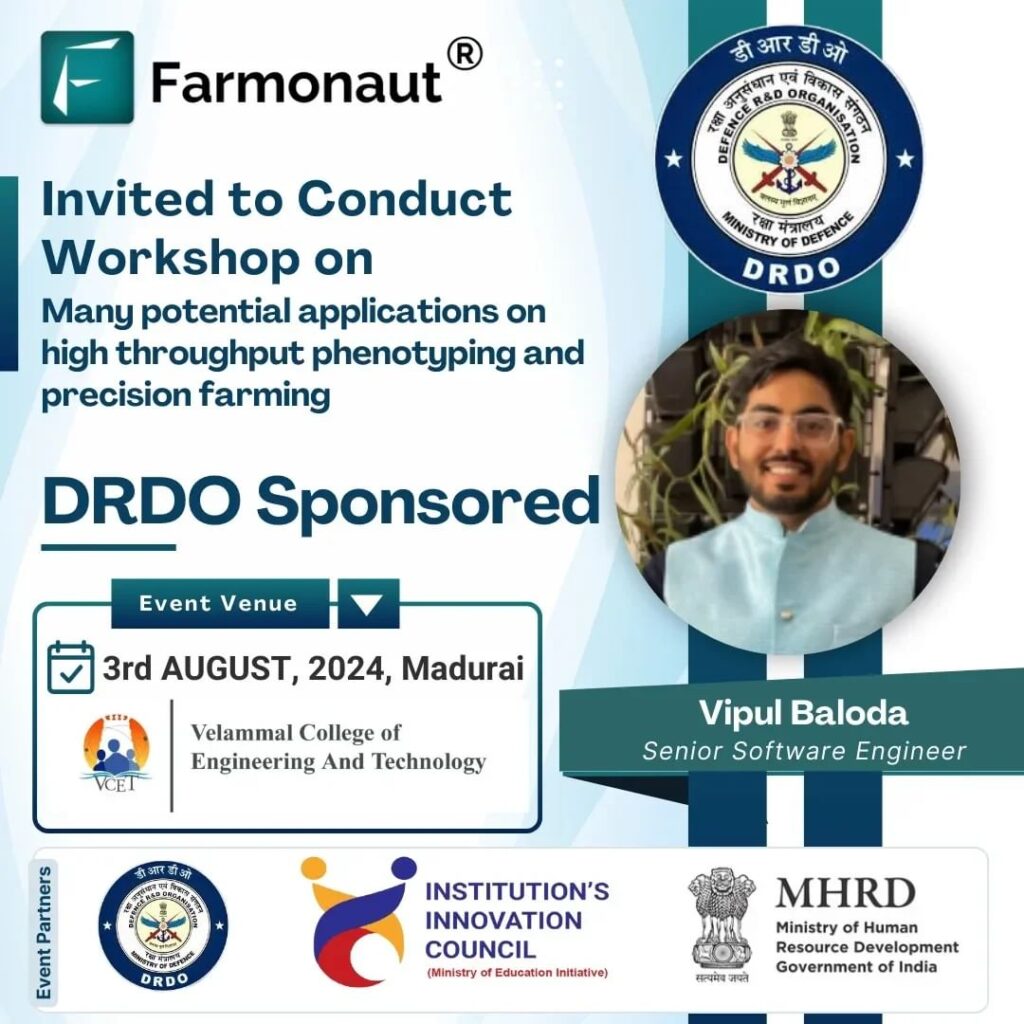Transforming Agrifood Systems: Farmonaut’s Role in Climate-Resilient Agriculture and Food Security at COP29 Baku
“COP29 in Baku highlighted a $1.1 trillion annual funding gap for sustainable food systems transformation.”
As we reflect on the pivotal discussions that took place at the 2024 UN Climate Change Conference (COP29) in Baku, Azerbaijan, it’s clear that the global community has reached a critical juncture in addressing climate change and food security. The conference, aptly dubbed the “climate finance COP,” brought to the forefront the urgent need for transforming our agrifood systems to combat the climate crisis while simultaneously addressing interlinked challenges such as biodiversity loss, food insecurity, land degradation, and poverty.
At Farmonaut, we recognize the gravity of these challenges and the crucial role that innovative agritech solutions play in shaping a sustainable future for agriculture. Our mission aligns seamlessly with the global push for agricultural climate adaptation and enhanced food security, as highlighted during COP29. In this comprehensive blog post, we’ll explore the key outcomes of the conference, the critical role of climate-resilient agriculture, and how Farmonaut’s cutting-edge technologies are poised to drive the transformation towards resilient and sustainable agrifood systems.
The Urgency of Agrifood System Transformation
The Food and Agriculture Organization (FAO) of the United Nations made a compelling case at COP29 for the transformation of agrifood systems as a linchpin in addressing climate change. FAO Director-General QU Dongyu emphasized that achieving the targets set by the Paris Agreement and the Sustainable Development Goals hinges largely on this transformation.
Key points highlighted during the conference include:
- The need for a new global climate finance target to succeed the previous $100 billion annual commitment
- A stark $1.1 trillion annual funding gap for agrifood systems transformation
- The importance of integrating agrifood systems into national planning and multilateral environmental agreements
- The launch of initiatives like the Baku Harmoniya Climate Initiative to assist farmers in navigating climate-resilient agrifood transformations
As a company at the forefront of agricultural innovation, we at Farmonaut understand the critical nature of these discussions. Our satellite-based farm management solutions are designed to address many of the challenges highlighted at COP29, particularly in the areas of climate-resilient agriculture and sustainable farming practices.
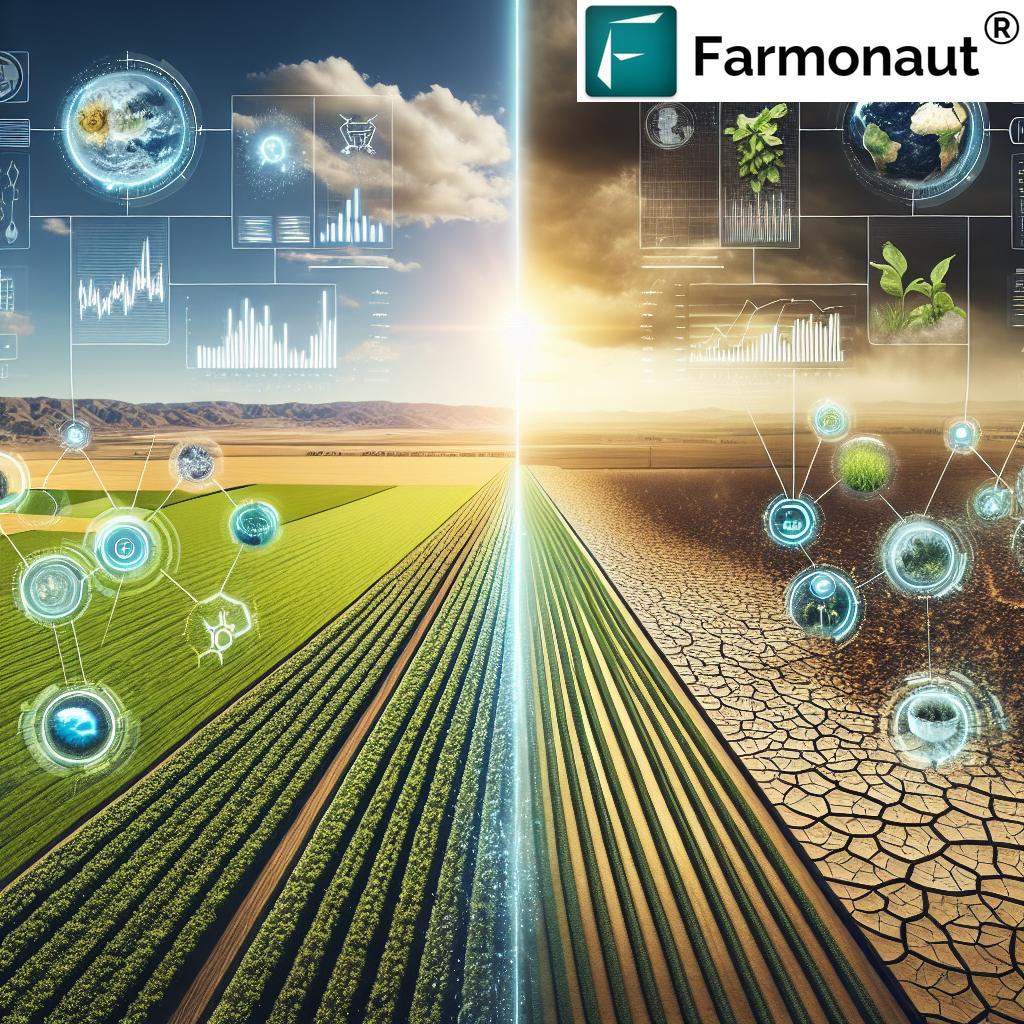
Climate Finance and Agricultural Investment
One of the most significant outcomes of COP29 was the focus on climate finance, particularly in relation to agrifood systems. The conference sought to establish new global targets for climate finance, recognizing the substantial investment required to transform our food systems in the face of climate change.
While specific financial figures were not fully agreed upon, there was a clear consensus on the need for increased investment. The FAO reported a total of $29 billion in climate-related development finance for agrifood systems in 2022, a figure that, while showing progress, falls far short of the estimated $1.1 trillion annual funding gap.
At Farmonaut, we’re committed to bridging this gap by providing cost-effective precision agriculture solutions. Our platform makes advanced farm management tools accessible to farmers of all scales, contributing to the efficient use of resources and promoting sustainable practices.
The Baku Harmoniya Climate Initiative
“The Baku Harmoniya Climate Initiative aims to support farmers in navigating climate challenges across multiple countries.”
A significant outcome of COP29 was the launch of the Baku Harmoniya Climate Initiative. This ambitious program aims to unite various initiatives and partnerships to enhance collaborative impacts on farmers and rural communities. The initiative seeks to provide comprehensive support to farmers in navigating the complexities of climate-resilient agrifood transformations.
Key aspects of the Baku Harmoniya Climate Initiative include:
- Providing farmers with tools and knowledge for climate adaptation
- Promoting sustainable agricultural practices
- Enhancing collaboration between different stakeholders in the agricultural sector
- Supporting the integration of agrifood systems into national climate action plans
At Farmonaut, we see our role as complementary to initiatives like Baku Harmoniya. Our satellite-based crop health monitoring and AI-driven advisory systems align perfectly with the goals of providing farmers with advanced tools for climate adaptation. By offering real-time insights into crop health, soil moisture levels, and weather patterns, we empower farmers to make informed decisions that enhance their resilience to climate challenges.

Integrating Agrifood Systems into National Climate Action Plans
A critical theme that emerged from COP29 was the importance of integrating agricultural considerations into national climate action plans and multilateral environmental agreements. This integration is vital for realizing the full potential of agrifood systems as climate solutions.
The FAO presented analyses of Nationally Determined Contributions (NDCs) that highlighted substantial investment gaps and the need for a more comprehensive incorporation of agrifood systems. As countries prepare to present updated NDCs at COP30 in Brazil, the focus on agriculture’s role in climate strategies is expected to intensify.
Farmonaut’s solutions are well-positioned to support this integration. Our platform provides valuable data and insights that can inform policy decisions and help countries track their progress in implementing sustainable agricultural practices. For instance, our carbon footprinting feature allows agribusinesses to monitor and reduce their environmental impact, aligning with national and global climate goals.
Innovative Technologies for Climate-Resilient Agriculture
COP29 highlighted the critical role of innovative technologies in developing climate-resilient agricultural practices. Discussions at the conference emphasized the importance of leveraging cutting-edge solutions to address challenges in water management, carbon sequestration, and overall farm productivity.
At Farmonaut, we’re at the forefront of this technological revolution in agriculture. Our suite of tools includes:
- Satellite-Based Crop Health Monitoring: Providing real-time insights into vegetation health and soil moisture levels
- Jeevn AI Advisory System: Delivering personalized farm advisory and expert crop management strategies
- Blockchain-Based Product Traceability: Ensuring transparency and security in agricultural supply chains
- Fleet and Resource Management: Optimizing agricultural operations and reducing environmental impact
These technologies align perfectly with the global push for agricultural climate adaptation and enhanced food security emphasized at COP29. By making these advanced tools accessible and affordable, we’re democratizing access to precision agriculture and contributing to the transformation of agrifood systems worldwide.
Explore our API solutions to see how Farmonaut can be integrated into your agricultural operations.
Water Management Strategies in Agriculture
Water scarcity and management emerged as critical topics at COP29, particularly in the context of climate-resilient agriculture. The conference emphasized the need for innovative approaches to water use in farming, recognizing that climate change is exacerbating water-related challenges in many regions.
Farmonaut’s solutions play a crucial role in addressing these water management challenges. Our satellite-based monitoring system provides farmers with accurate data on soil moisture levels, enabling them to make informed decisions about irrigation. This precision approach to water management not only conserves this precious resource but also improves crop yields and reduces costs for farmers.
Key benefits of our water management solutions include:
- Optimized irrigation schedules based on real-time soil moisture data
- Early detection of water stress in crops
- Improved water use efficiency across large agricultural areas
- Support for drought mitigation strategies
By providing these tools, we’re helping farmers adapt to changing climate conditions and contributing to the global effort to create more resilient and sustainable agrifood systems.
Carbon Sequestration Techniques in Farming
Carbon sequestration in agriculture was a hot topic at COP29, with discussions focusing on how farming practices can be leveraged to capture and store carbon dioxide from the atmosphere. This approach not only helps mitigate climate change but also improves soil health and agricultural productivity.
At Farmonaut, we recognize the importance of carbon sequestration in sustainable agriculture. Our platform includes features that support farmers in implementing and monitoring carbon sequestration techniques:
- Carbon Footprinting: Our tool helps agribusinesses track their carbon emissions, enabling them to identify areas for improvement and implement carbon-reducing practices.
- Crop Health Monitoring: By providing detailed insights into crop health, we help farmers optimize their use of inputs, reducing unnecessary emissions and promoting practices that enhance soil carbon storage.
- AI-Driven Advisory: Our Jeevn AI system offers personalized recommendations that can include carbon sequestration techniques tailored to specific farm conditions.
These tools align with the global push for sustainable farming practices highlighted at COP29, demonstrating how technology can play a crucial role in transforming agriculture into a solution for climate change.
Agricultural Biodiversity Conservation
The preservation of agricultural biodiversity was another crucial theme at COP29, recognizing its importance in building resilient food systems and adapting to climate change. Biodiversity in agriculture contributes to pest resistance, improves soil health, and enhances overall ecosystem services.
Farmonaut’s platform supports agricultural biodiversity conservation in several ways:
- Our satellite monitoring allows for the identification and tracking of diverse crop types across large areas.
- The AI advisory system can provide recommendations for crop rotation and intercropping practices that promote biodiversity.
- By optimizing resource use, our tools reduce the pressure on natural ecosystems, indirectly supporting biodiversity conservation.
Through these features, we’re helping farmers implement practices that not only improve their yields but also contribute to the broader goals of biodiversity conservation and sustainable agriculture emphasized at COP29.
Global Climate-Resilient Agriculture Initiatives at COP29
To provide a comprehensive overview of the key initiatives discussed at COP29 for climate-resilient agriculture, we’ve compiled the following comparison table:
| Initiative Name | Primary Focus Area | Estimated Investment (USD) | Potential Impact on Food Security | Alignment with Farmonaut’s Solutions |
|---|---|---|---|---|
| Baku Harmoniya Climate Initiative | Farmer Support and Climate Adaptation | 500 million | High | Yes |
| Global Soil Health Program | Carbon Sequestration | 300 million | Medium | Yes |
| Sustainable Water Management Alliance | Water Management | 750 million | High | Yes |
| Agro-Biodiversity Conservation Network | Agricultural Biodiversity | 200 million | Medium | Yes |
| Climate-Smart Agriculture Technology Fund | Agritech Innovation | 1 billion | High | Yes |
This table illustrates the diverse range of initiatives launched or discussed at COP29, all aimed at promoting climate-resilient agriculture and sustainable food systems. Notably, Farmonaut’s solutions align well with these global efforts, showcasing our commitment to driving positive change in the agricultural sector.
Farmonaut’s Role in Driving Sustainable Agrifood Systems
As we’ve explored the key outcomes and initiatives from COP29, it’s clear that the transformation of agrifood systems is crucial for addressing climate change and ensuring global food security. At Farmonaut, we’re proud to be at the forefront of this transformation, offering innovative solutions that align perfectly with the goals outlined at the conference.
Our comprehensive suite of tools, including satellite-based crop monitoring, AI-driven advisory systems, and blockchain-based traceability solutions, addresses many of the challenges highlighted at COP29. By making these advanced technologies accessible and affordable, we’re democratizing precision agriculture and contributing to the global effort to create more resilient and sustainable food systems.
Key ways in which Farmonaut is driving sustainable agrifood systems include:
- Promoting climate-resilient agriculture through real-time crop monitoring and personalized advice
- Supporting efficient water management with precise soil moisture data
- Enabling carbon footprint tracking to help reduce agricultural emissions
- Enhancing agricultural biodiversity through informed crop management practices
- Improving transparency and traceability in agricultural supply chains
As we look towards COP30 and beyond, Farmonaut remains committed to driving innovation in agriculture and supporting the global transition to sustainable and resilient agrifood systems. We invite farmers, agribusinesses, and policymakers to explore how our solutions can support their efforts in building a more sustainable and food-secure future.
Ready to transform your agricultural practices? Try Farmonaut today and join the movement towards climate-resilient agriculture.
Farmonaut Subscriptions
Frequently Asked Questions
Q: How does Farmonaut contribute to climate-resilient agriculture?
A: Farmonaut offers satellite-based crop monitoring, AI-driven advisory systems, and resource management tools that help farmers adapt to changing climate conditions, optimize resource use, and implement sustainable practices.
Q: Can Farmonaut’s solutions help reduce water usage in agriculture?
A: Yes, our satellite-based soil moisture monitoring allows farmers to optimize irrigation schedules, reducing water waste and improving overall water use efficiency.
Q: How does Farmonaut support carbon sequestration in farming?
A: Our platform includes carbon footprinting tools and provides recommendations for practices that enhance soil carbon storage, supporting farmers in implementing effective carbon sequestration techniques.
Q: Is Farmonaut suitable for small-scale farmers?
A: Absolutely. We’ve designed our solutions to be accessible and affordable for farmers of all scales, from small-scale operations to large agribusinesses.
Q: How can policymakers use Farmonaut’s data to inform climate action plans?
A: Farmonaut’s comprehensive data on crop health, resource use, and agricultural practices can provide valuable insights for policymakers developing climate action plans and sustainable agriculture strategies.
By addressing the critical themes highlighted at COP29 and offering innovative solutions for sustainable agriculture, Farmonaut is playing a crucial role in the global effort to transform agrifood systems. Our commitment to making advanced agricultural technologies accessible and affordable aligns perfectly with the urgent need for climate-resilient agriculture and enhanced food security emphasized at the conference. As we move forward, Farmonaut will continue to drive innovation and support farmers worldwide in building a more sustainable and resilient future for agriculture.







